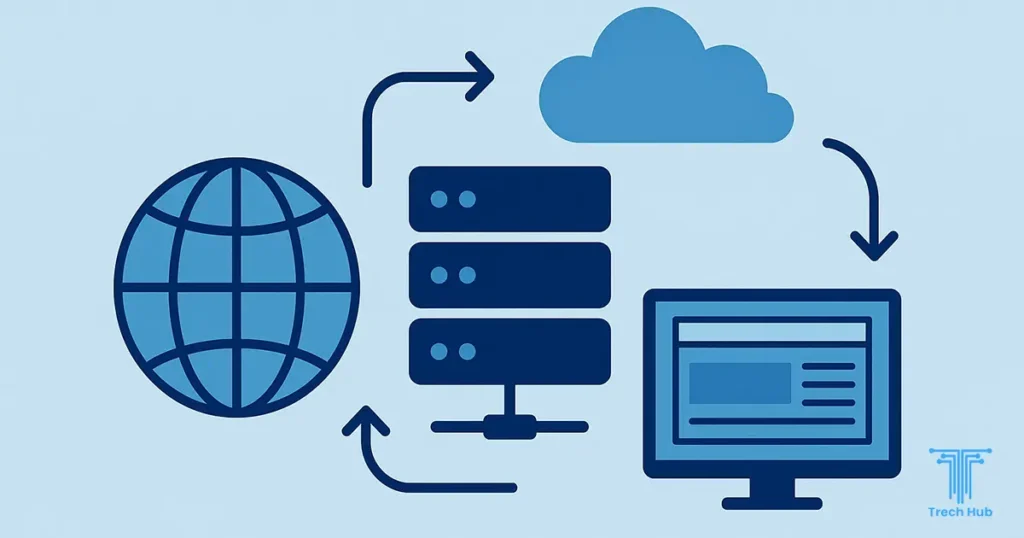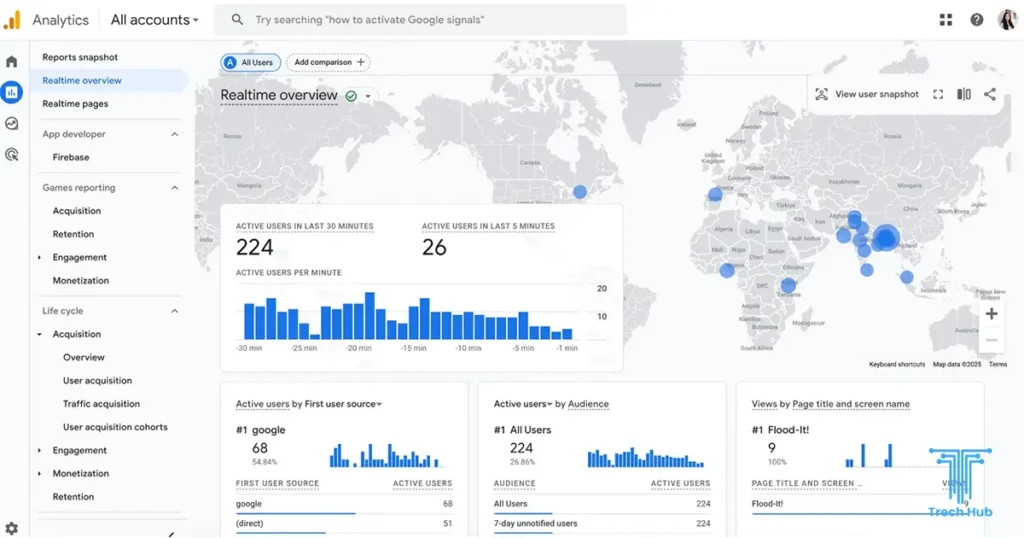In today’s digital age, having a robust online presence is essential for businesses and individuals alike. Whether you’re a small business owner, a blogger, or a large corporation, a website is often the first point of contact with your audience. But what happens behind the scenes to make a website accessible to users around the world? This is where web hosting comes into play. In this article, we will explore what web hosting is and the various types of hosting services available to help you find the best fit for your needs.
What is Web Hosting?
Web hosting is a service that allows individuals and organizations to make their websites accessible via the World Wide Web. Essentially, it’s like renting space on a server—a powerful computer that stores your website’s files and data. When someone types your domain name (for example www.trechhub.com) into their browser, the server hosting your website sends the necessary files to their device, enabling them to view your site.
Without web hosting, your website wouldn’t be accessible to anyone, no matter how well-designed or well-optimized it is. Choosing the right web hosting service is crucial because it affects your site’s performance, speed, security, and scalability.
Types of Web Hosting
There are several types of web hosting, each catering to different needs and levels of technical expertise. Here’s a breakdown of the most common hosting types:
1. Shared Hosting.
Best for: Beginners, small websites, personal blogs, small businesses.
Shared hosting is the most affordable and straightforward type of web hosting, ideal for those just starting. In a shared hosting environment, multiple websites share the same server and its resources, such as CPU, RAM, and bandwidth.
Pros:
- Cost-effective: Shared hosting plans are generally the most affordable option.
- Easy to use: Requires minimal technical knowledge, as the hosting provider handles server maintenance and security.
- Convenient: Most providers offer one-click installations for popular content management systems (CMS) like WordPress.
Cons:
- Limited resources: Because you’re sharing resources with other sites, high traffic on one site can affect the performance of others.
- Less control: Limited access to server configurations and settings.
- Security risks: Increased vulnerability due to shared environment.
2. Virtual Private Server (VPS)
Best for: Growing businesses, medium-sized websites, developers.
VPS hosting provides a middle ground between shared hosting and dedicated hosting. In a VPS environment, a physical server is divided into multiple virtual servers. Each VPS operates independently, with its own dedicated resources and operating system, giving users more control and flexibility.
Pros:
- Dedicated resources: Allocated resources mean better performance and reliability.
- Scalability: Easily upgrade resources as your site grows.
- Control: Greater control over server settings and configurations.
Cons:
- Higher cost: More expensive than shared hosting.
- Technical knowledge required: Managing a VPS often requires more technical expertise.
3. Dedicated Hosting
Best for: Large businesses, high-traffic websites, enterprise-level applications.
Dedicated hosting means that your website has an entire physical server all to itself. This type of hosting is ideal for websites with high traffic volumes or those requiring extensive resources and security.
Pros:
- Maximum performance: No sharing of resources means optimal performance.
- Full control: Complete control over server configuration, software, and security settings.
- High security: Enhanced security options due to isolated environment.
Cons:
- Costly: One of the most expensive hosting options.
- Technical expertise needed: Requires significant knowledge to manage and maintain.
4. Cloud Hosting
Best for: Websites with fluctuating traffic, e-commerce sites, web applications.
Cloud hosting utilizes a network of interconnected servers to host websites. This setup provides greater flexibility and reliability, as resources are distributed across multiple servers.
Pros:
- Scalability: Easily scale resources up or down depending on traffic demands.
- Reliability: Reduced risk of downtime since multiple servers are involved.
- Cost-Effective: Pay for only the resources you use.
Cons:
- Variable costs: Costs can vary month to month based on resource usage.
- Complexity: Can be more complex to set up and manage compared to traditional hosting.
Choosing the right hosting for your needs
Selecting the right web hosting service is crucial for your online success. At Trech Hub, we offer a wide range of hosting services tailored to fit your needs, whether you are a start-up, a growing business, or a large enterprise. Our team of experts can help you evaluate your requirements and choose the perfect hosting solution to ensure your website is fast, secure, and always available.
Ready to take your website to the next level? Contact us today to learn more about our hosting solutions and how we can help you achieve your digital goals.




